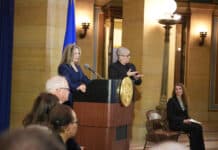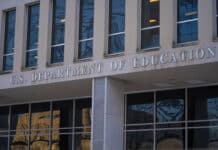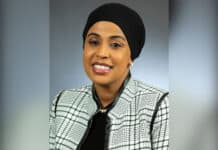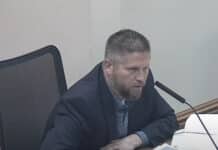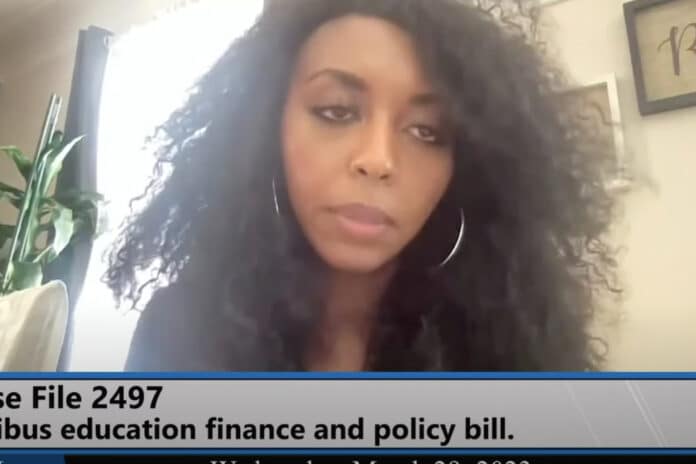
Democrats in the House last week moved forward with an education finance bill they are carrying for Gov. Tim Walz that proposes to increase spending in K-12 by $2.2 billion over the next biennium.
While the bill, HF2497, contains many new funding provisions, including a 4 percent increase in the per pupil funding formula next year, and an additional 2 percent increase in 2025, it also includes policy changes to the teaching licensure landscape — one of those being the elimination of several alternative licensure pathways that some educators and education advocacy groups say would deepen the effects of a workforce shortage and adversely impact teachers of color.
One of those teachers, Haben Ghebregergish, testified in opposition to the provision she says would have prevented her from teaching in her home state of Minnesota after she earned her teaching license in Michigan.
Ghebregergish has been a math teacher at the High School for Recording Arts charter school in St. Paul for five years.
The first-generation college student who graduated from Eagan High School went on to earn honors at the University of Chicago before beginning her teaching career in Detroit. While there, she earned her teaching license at the University of Michigan. Ghebregergish then decided to move back to Minnesota, and, thanks to a teaching licensing pathway newly developed in Minnesota, she was able to land a job through the state’s Tier 2 pathway to licensure.
About 6 percent of educators in Minnesota are teachers of color, and 25 percent of teachers with Tier 2 licenses are teachers of color, according to Minnesota-based EdAllies.
“The experience that I had in Detroit for those four years helped me obtain the Tier 2 license” in Minnesota, Ghebregergish said. “If these provisions had been in place when I moved back to Minnesota, I would not have been able to stay in teaching here.”
“Part of this overall bill seeks to increase the diversity of the teaching workforce, but these restrictions on teaching licensure will discourage teachers of color from entering the teaching profession,” she continued.
The House Education Finance Committee voted on Thursday to endorse the K-12 spending plan — that includes the elimination of six of nine pathways to Tier 2 licensure — on a party-line vote. The bill will next receive a hearing in the House Taxes Committee in April. A Senate version of the bill also includes the same provision. In 2021, the governor’s education bill contained the same provision but did not make it out of the Republican-controlled Senate.
Minnesota features a tiered licensing system for its K-12 teachers that includes built-in prerequisites for advancing up the ladder. A Tier 2 licensed teacher can currently qualify for a Tier 3 license via an “experience pathway.” The Minnesota Department of Education considers this a shortcut for advancement and wants to eliminate it.
“In the midst of a teacher shortage impacting every corner of the state and likely being experienced most acutely by students of color, and students in poverty, making it harder to become a teacher in Minnesota misses the moment,” said Matt Shaver, policy director for EdAllies, which has testified in opposition to the Walz administration’s proposed elimination of the Tier 2 and Tier 3 licensure pathways.
Charter schools who employ language teachers from other countries would also be adversely affected, said Shannon Peterson, executive director of Lakes International Language Academy in Forest Lake.
“We find many teachers overseas, and they have teaching credentials and experience in their home countries,” Peterson said. “They love it here, both in our school and our state.”
Those teachers start as Tier 2 and if they’re required to earn another degree while working in Minnesota, they would likely not be able to afford the cost or time, and would likely leave, Peterson added.
“Please don’t deprive our students of some excellent teachers,” she said.
Hank Long
Hank Long is a journalism and communications professional whose writing career includes coverage of the Minnesota legislature, city and county governments and the commercial real estate industry. Hank received his undergraduate degree at the University of Minnesota, where he studied journalism, and his law degree at the University of St. Thomas. The Minnesota native lives in the Twin Cities with his wife and four children. His dream is to be around when the Vikings win the Super Bowl.



